Strategies for Developing Learning Outcomes and Cognitive Skills
VerifiedAdded on 2022/08/23
|5
|997
|49
Homework Assignment
AI Summary
This assignment delves into the complexities of cognitive taxonomy and its development through various learning strategies. It emphasizes the importance of aligning learning methods with specific learning goals, as defined by educators and students. The assignment outlines the six phases of learning in psychology, from remembering to synthesis, and develops learning objectives based on cognitive, psychomotor, and affective parameters using the ABCD method. It presents five terminal course objectives, focusing on recalling information, understanding concepts, applying knowledge, developing psychomotor skills, and fostering affective values. The study aims to improve cognitive, affective, and psychomotor faculties, broadening students' problem-solving and decision-making skills, in alignment with Bloom's taxonomy. The assignment highlights the significance of interventions by educators and the importance of considering affective parameters when formulating cognitive and psychomotor objectives. It concludes by emphasizing the expansion of knowledge perception and synthesis, making the learning process more meaningful and experiential.
1 out of 5
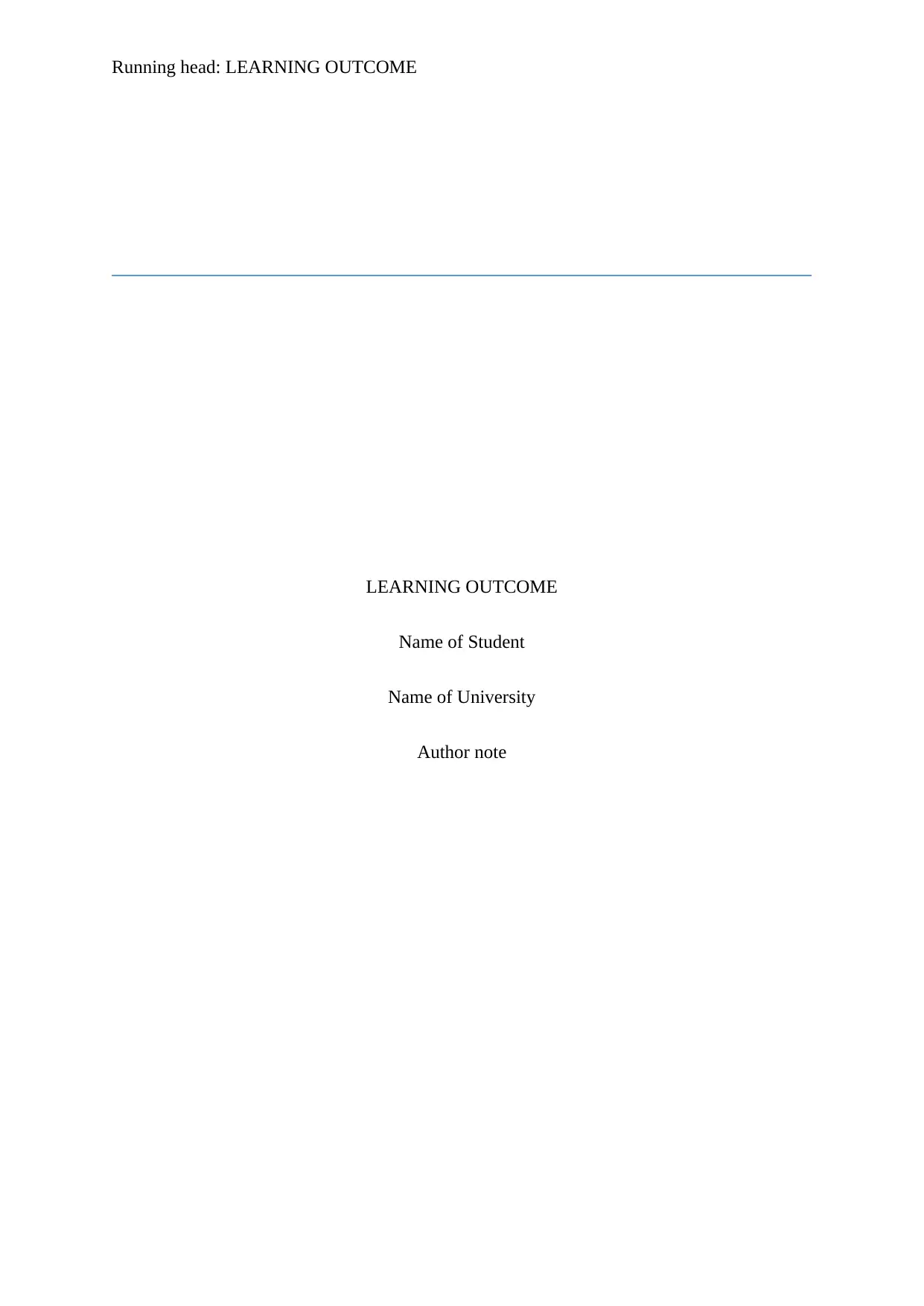
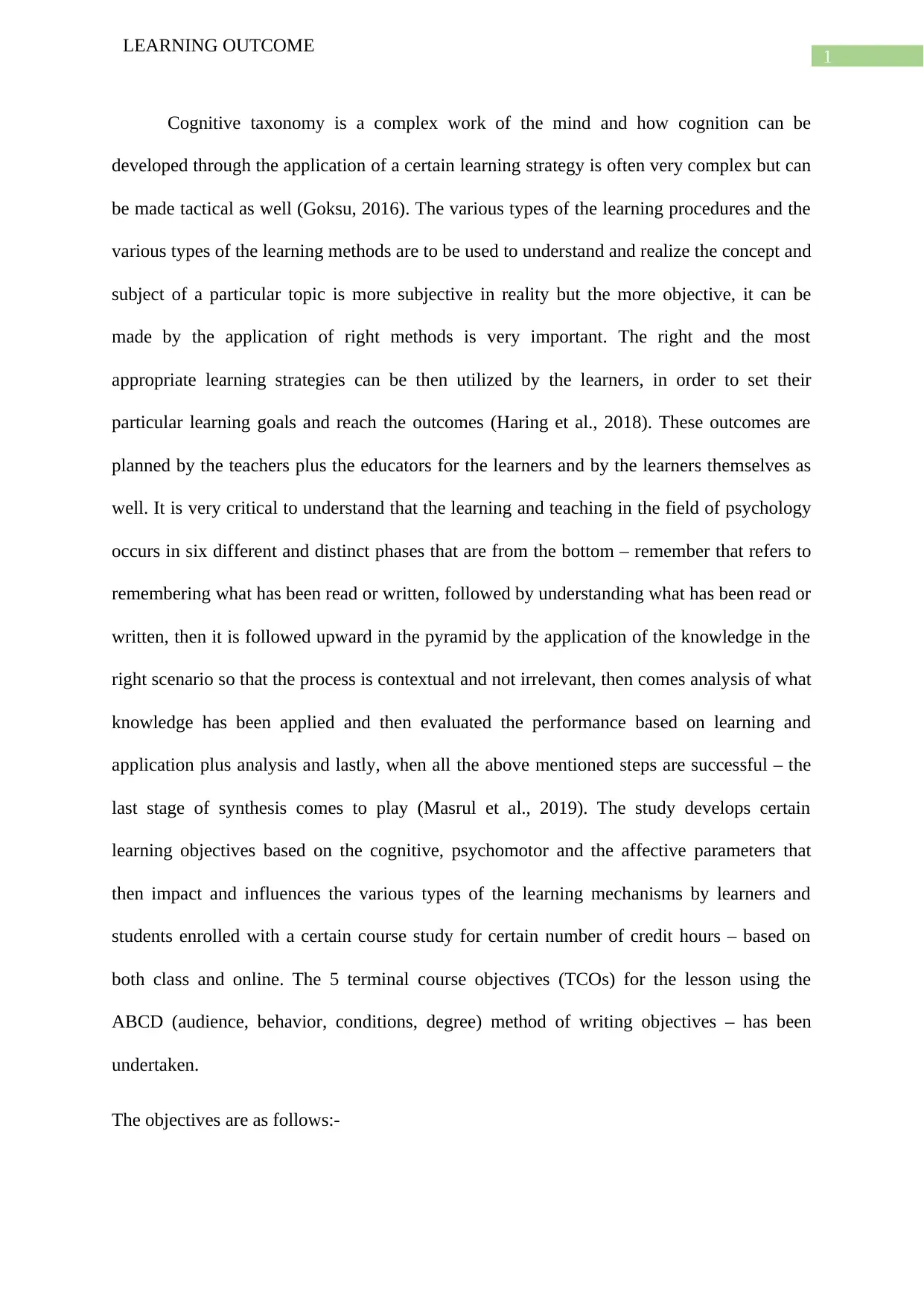
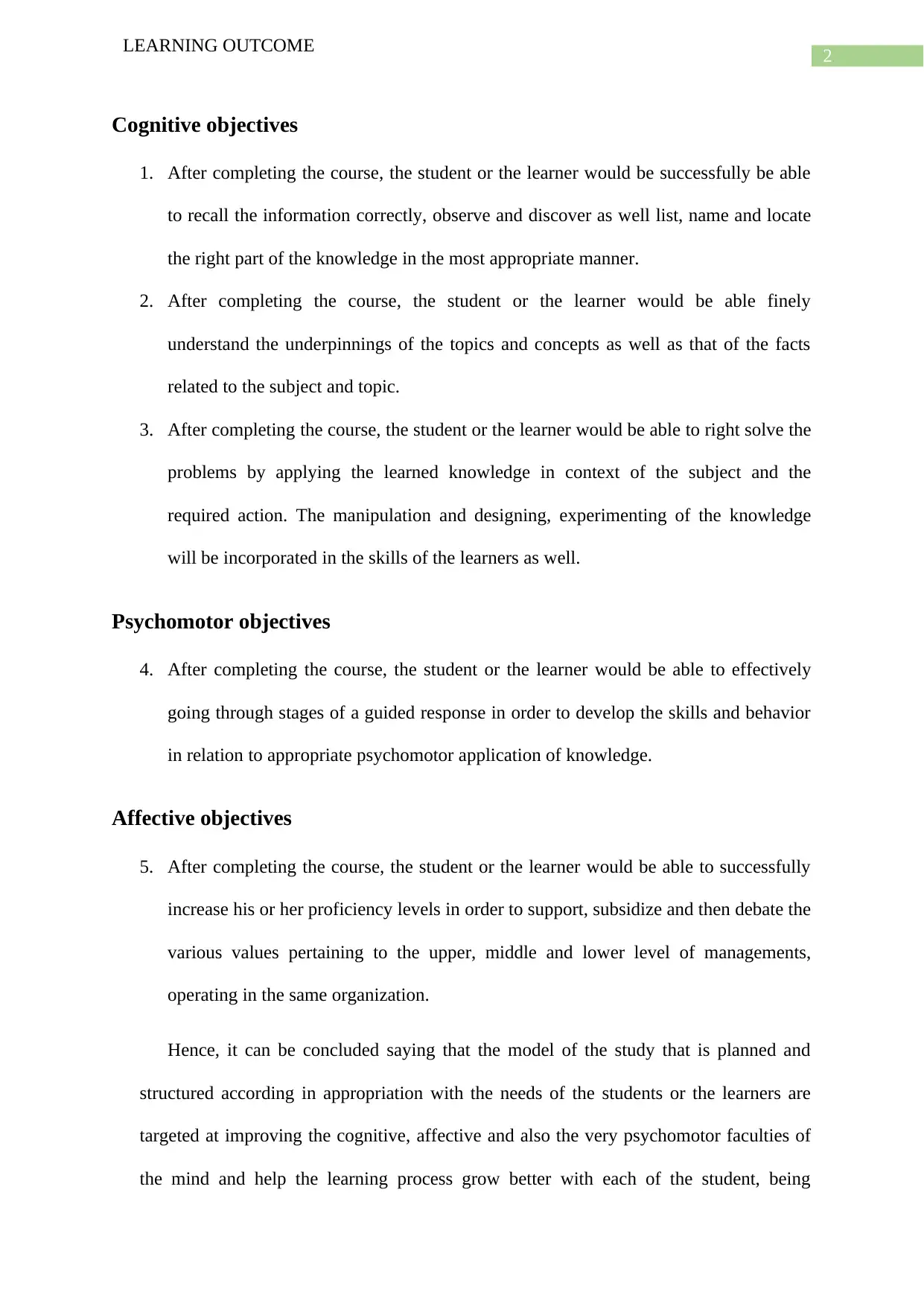

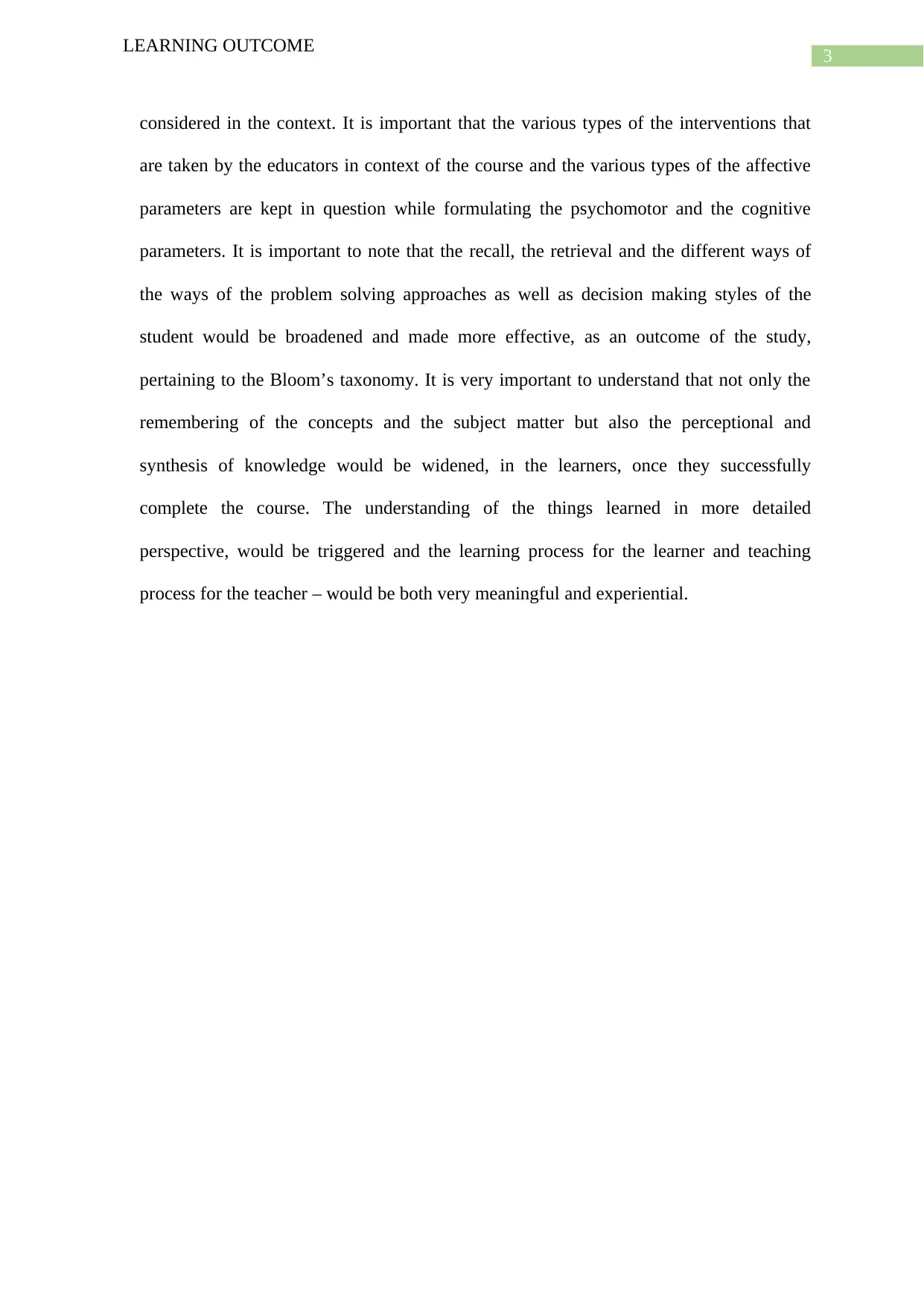
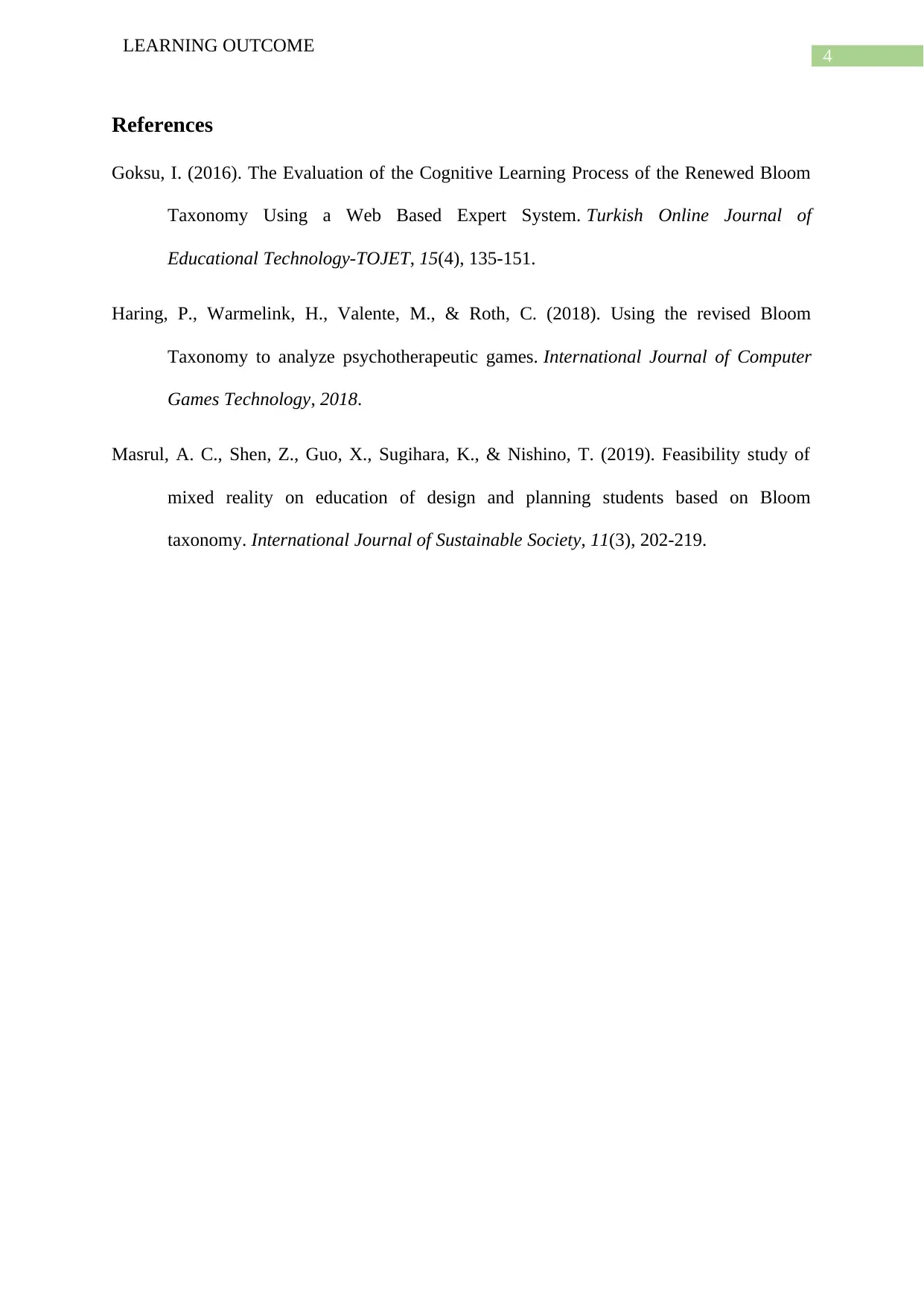





![[object Object]](/_next/static/media/star-bottom.7253800d.svg)